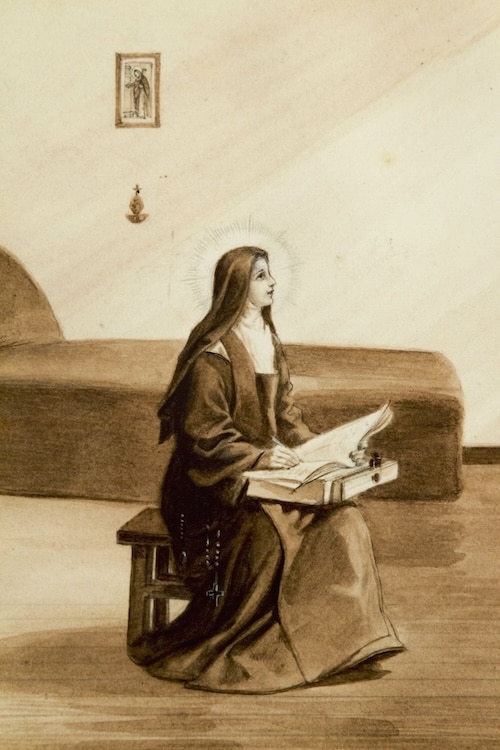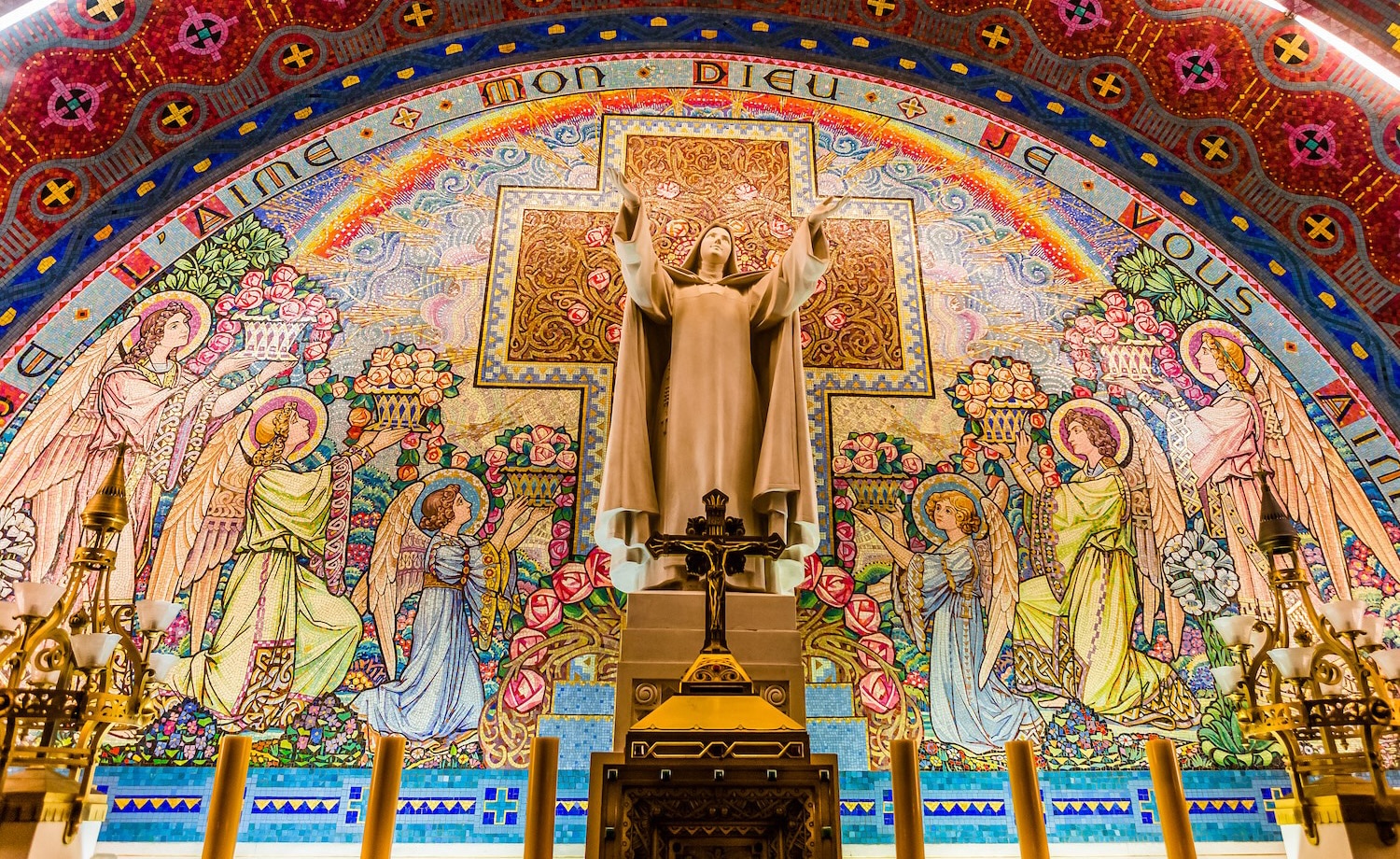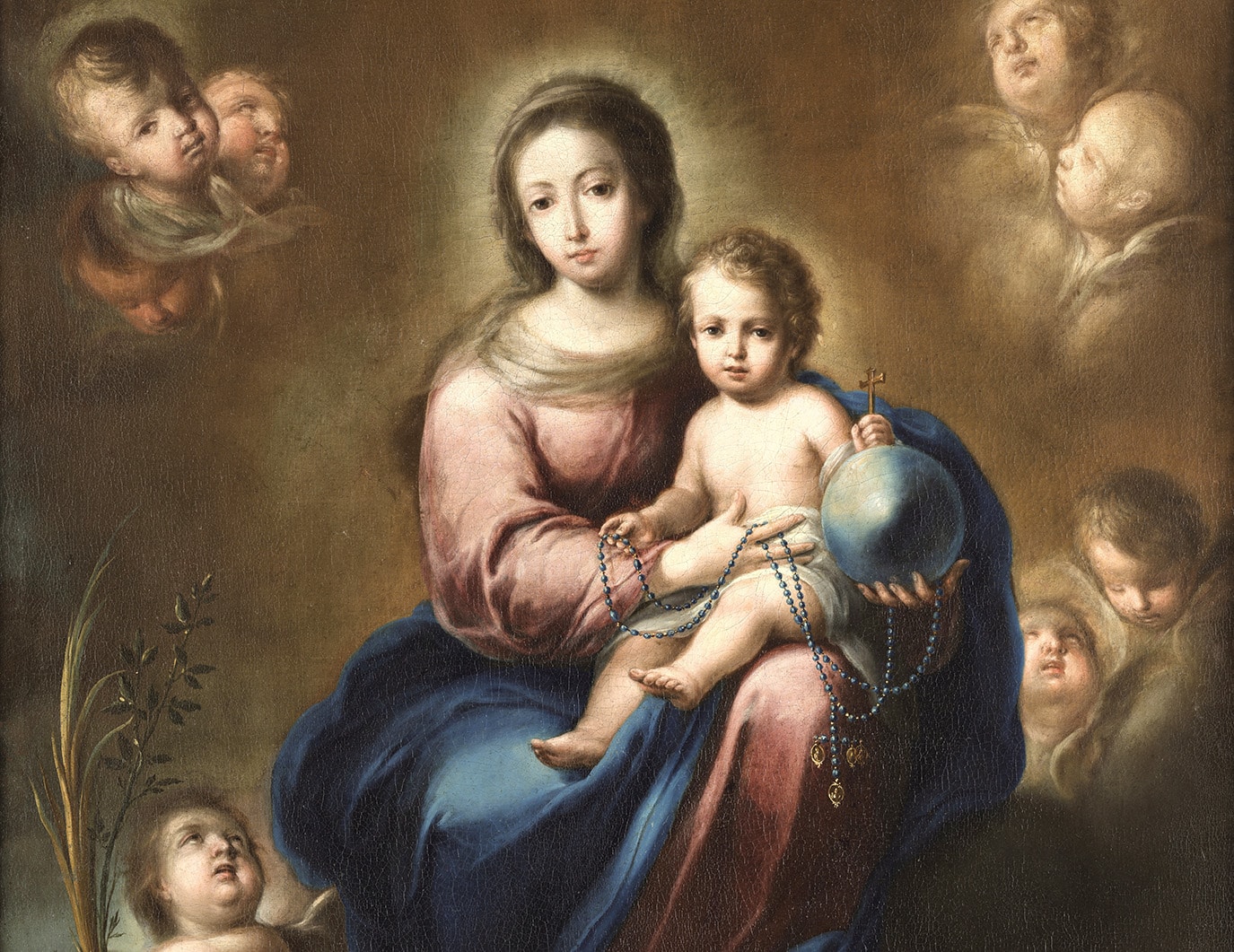Millions of people worldwide have encountered St. Thérèse of Lisieux through her autobiography, “Story of a Soul.” But during her lifetime, the 19th-century French Carmelite nun — a saint beloved for her “little way” of childlike trust and confidence in God’s merciful love — produced other, lesser-known writing, including a poem to her guardian angel.
In the poem, written in 1897, St. Thérèse addresses the “Glorious Guardian of my soul” who invites her to “look only at Heaven” just months before dying of tuberculosis at the age of 24.
“During the last year and a half of her life, when she experienced the terrible dark night of sense and spirit, she had to make a great, often heroic, effort to trust that there were angels and saints who cared about her and then to call upon them for their help,” Father Donald Kinney, OCD, who translated “The Poetry of St. Thérèse of Lisieux” from ICS Publications, told Our Sunday Visitor in an email.
He quoted the book, “The Story of a Family: The Home of St. Thérèse of Lisieux,” by Father Stéphane-Joseph Piat, OFM, about St. Thérèse’s family, saying, “With their great love of Heaven and the death of four little children, ‘It’s as if the whole family lived looking out the window up to Heaven.'”
“I would think this could be a central point,” Father Kinney said, “that the angels and saints were so close to St. Thérèse that they were a part of everything she did.”
Today, the feast day of St. Thérèse — one of four women named a Doctor of the Church for her significant contributions to the Faith — falls on Oct. 1, the day before the feast of the guardian angels on Oct. 2.

on which she penned reflections, poetry and letters. (CNS photo/Nancy Phelan Wiechec)
The poem
Above St. Thérèse’s poem to her guardian angel, the initials “J.M.J.T.” appear, in honor of Jesus, Mary, Joseph and St. Teresa of Ávila. Here is the poem, as translated in “The Poetry of St. Thérèse of Lisieux”:
To My Guardian Angel
1. Glorious Guardian of my soul,
You who shine in God’s beautiful Heaven
As a sweet and pure flame
Near the Eternal’s throne,
You come down to earth for me,
And enlightening me with your splendor,
Fair Angel, you become my Brother,
My Friend, my Consoler! …
2. Knowing my great weakness,
You lead me by the hand,
And I see you tenderly
Remove the stone from my path.
Your sweet voice is always inviting me
To look only at Heaven.
The more you see me humble and little,
The more your face is radiant.
3. O you! who travel through space
More swiftly than lightning,
I beg you, fly in my place.
Close to those who are dear to me.
With your wing dry their tears.
Sing how good Jesus is.
Sing that suffering has its charms,
And softly, whisper my name. …
4. During my short life I want
To save my fellow sinners.
O Fair Angel of the Homeland,
Give me holy fervor.
I have nothing but my sacrifices
And my austere poverty.
With your celestial delights,
Offer them to the Trinity.
5. For you the Kingdom and the Glory,
The Riches of the King of kings.
For me the ciborium’s humble Host.
For me the Cross’s treasure.
With the Cross, with the Host,
With your celestial aid,
In peace I await the other life,
The joys that will last forever.
A closer look
St. Thérèse signs the poem “To my dear Sister Marie-Philomena” as “a remembrance of her little girl.”
In “The Poetry of St. Thérèse of Lisieux,” Father Kinney writes that St. Thérèse probably wrote the poem for, and at the request of, another nun named Sister Marie Philomena. In a footnote, he adds that a study found that St. Thérèse probably wrote it in January 1897 and then copied it four months later, in May, for the sister “as a goodbye remembrance.”
St. Thérèse describes herself as Sister Marie Philomena’s “little girl,” which may refer to their time together in the novitiate, he writes.
A native of France, Sister Marie-Philomena of Jesus entered the Carmel of Lisieux in 1876 before leaving the next year to care for her mother, who was seriously ill. She returned at the age of 45 in 1884. A few years later, in 1888, St. Thérèse entered at the age of 15.
A focus on angels
For further information about St. Thérèse’s focus on angels, Father Kinney pointed to “A Companion to Saint Thérèse of Lisieux: Her Life and Work & The People and Places In Her Story” by Joseph P. Kochiss. In his book, Kochiss notes that St. Thérèse’s guardian angel “was very real and important to her.”
“In Prayer 5 she wrote a number of pious aspirations one of which is: ‘O my Holy Guardian Angel! Cover me always with your wings so that I may never have the misfortune to offend Jesus,” Kochiss cites another poem by St. Thérèse.
Angels in general appear throughout St. Thérèse’s work, including in her poetry, which Father Kinney calls a “song addressed to heaven” in the introduction to his book. He counts her referring to “angels” 54 times in her poetry.
Angels make appearances in her other works of art. In 1893, she painted a fresco on the wall of an oratory where sisters who were sick could pray.
“If you look closely at the top left of the painting, you will see a little angel holding lilies, who has fallen asleep,” Father Kinney described in his email. “That is a self-portrait. St. Thérèse was often falling asleep at prayer!”
The saint also writes about angels in her famed autobiography.
“I presented myself before the angels and saints and I said to them: ‘I am the smallest of creatures; I know my misery and my feebleness, but I know also how much noble and generous hearts love to do good,” she recounts. “I beg you then, O Blessed Inhabitants of heaven, I beg you to ADOPT ME AS YOUR CHILD. To you alone will be the glory which you will make me merit, but deign to answer my prayer.”








